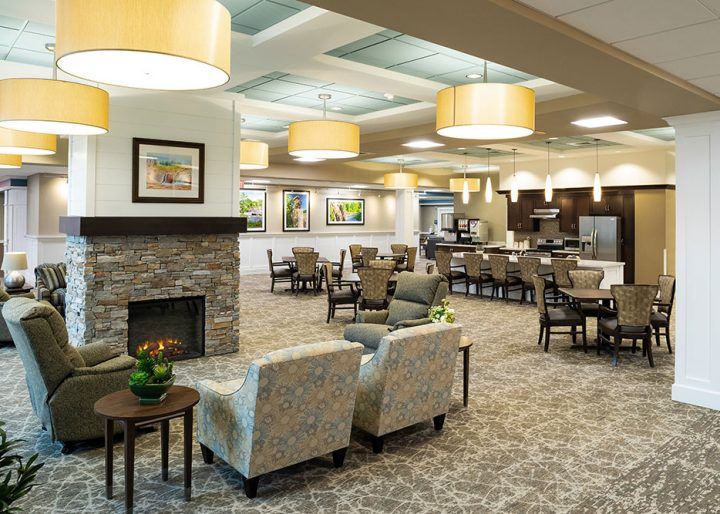Understanding How Assisted Living Supports Individuals With Dementia Treatment Requirements
Helped living facilities are increasingly identified for their critical function in attending to the complex care demands of individuals with mental deterioration. By offering an organized yet nurturing setting, these centers not only promote safety and well-being yet also cultivate a sense of autonomy through individualized treatment plans.
Overview of Mental Deterioration Treatment
Mental deterioration treatment is significantly crucial as the prevalence of dementia-related problems rises amongst maturing populations. This expanding group pattern requires a comprehensive understanding of dementia and the numerous approaches to care. Mental deterioration encompasses an array of cognitive problems that disrupt daily life, impacting memory, thinking, and interaction abilities. The problem can differ dramatically in its presentation, calling for customized care strategies to satisfy private requirements.
Efficient dementia treatment includes a multidisciplinary strategy, including clinical, emotional, and social assistance. Health care specialists, caretakers, and member of the family should team up to produce a caring setting that promotes the well-being of people with mental deterioration. Secret components of dementia treatment consist of personalized care plans, cognitive excitement therapies, and behavior interventions targeted at enhancing high quality of life.
Furthermore, it is vital to acknowledge the psychological and emotional difficulties encountered by both people and caregivers. Education and learning and training for caregivers play a crucial role in cultivating understanding and compassion, thus enhancing interactions with those influenced by dementia. As the need for mental deterioration care proceeds to climb, the focus should continue to be on providing caring, person-centered treatment that respects the dignity and choices of individuals living with this condition.
(Memory Care Facilities Charlotte)
Duty of Assisted Living Facilities
Aided living centers play an important function in giving treatment for individuals with mental deterioration, providing a supportive environment that balances freedom with the essential aid. These centers are made to satisfy the one-of-a-kind needs of residents, promoting a sense of neighborhood while making sure safety and security and wellness.
In an assisted living setup, skilled team member provide around-the-clock support, helping with everyday activities such as bathing, clothing, and drug management. This degree of care is important for individuals with dementia, that may battle with these jobs due to cognitive decline. Additionally, centers usually incorporate memory-enhancing programs and social tasks customized to promote cognitive functioning and urge social communication.
The physical environment of assisted living facilities is also maximized for safety, including safe and secure entryways, well-lit paths, and clear signage to aid residents navigate their surroundings. In addition, these neighborhoods promote a sense of belonging, minimizing the feelings of seclusion that individuals with mental deterioration may experience.
Personalized Treatment Plans
To make sure that each resident receives one of the most ideal care, personalized treatment strategies are crucial in assisted living centers for individuals with mental deterioration. These plans are tailored to satisfy the distinct demands, choices, and challenges dealt with by each resident, advertising their dignity and lifestyle.
The development of an individualized treatment strategy normally starts with an extensive evaluation performed by medical care specialists. Assisted read the full info here Living. This evaluation evaluates the individual's cognitive capabilities, physical health and wellness, psychological wellness, and social choices. Input from relative and the resident themselves is important, as it provides beneficial insights into their history, regimens, and individual interests
When the assessment is full, a multidisciplinary group collaborates to create a care plan that details particular objectives and treatments. This may consist of medicine monitoring, daily living assistance, and behavioral strategies tailored to reduce anxiousness or agitation.
Regular testimonials and updates to the care strategy guarantee it remains appropriate as the individual's problem evolves. Assisted Living. By focusing on personalized treatment, helped living centers can improve the general wellness of homeowners with dementia, promoting a setting that appreciates their uniqueness while resolving their treatment needs efficiently
Engaging Activities and Socializing
Involving tasks and socialization play a vital role in enhancing the lifestyle for residents with dementia in assisted living centers. These tasks are created to promote cognitive function, promote emotional health, and foster links among residents. Structured programs, such as art therapy, music sessions, and reminiscence treatment, provide opportunities for people to reveal themselves artistically while also setting off positive memories.
Socialization is just as critical, as it combats feelings of seclusion and loneliness that can accompany mental deterioration. Team activities, including video games, group trips, and public dining, motivate interaction and aid locals develop supportive partnerships with peers and caretakers. This sense of neighborhood not only enhances their everyday experiences however additionally adds to an extra secure emotional setting.
Furthermore, engaging activities can be tailored to individual preferences and cognitive degrees, guaranteeing that each resident can take part meaningfully. By developing an environment that focuses on involvement and social interaction, aided living centers can dramatically improve locals' general mental wellness, promoting a feeling of objective and belonging. Ultimately, these initiatives are important components of detailed dementia care, substantially affecting locals' general wellness and happiness.
Benefits of Community Support

Furthermore, neighborhood assistance promotes social communication, which is important for cognitive and psychological health and wellness. Involving with peers and getting involved in group tasks can improve state of mind and urge memory, adding to a higher sense of belonging. This social interaction is crucial, as isolation and seclusion can worsen cognitive decrease.

(Dementia Care Charlotte)
Verdict
Finally, aided living centers function as essential settings for people with dementia, using organized assistance that cultivates both independence and safety and security. The application of customized treatment strategies makes sure that each resident's distinct demands are fulfilled, while involving activities promote social communication and cognitive interaction. The sense of neighborhood within these facilities dramatically mitigates sensations of isolation, enhancing total psychological well-being. Therefore, assisted living plays a vital role in enhancing the top quality of life for individuals with dementia.